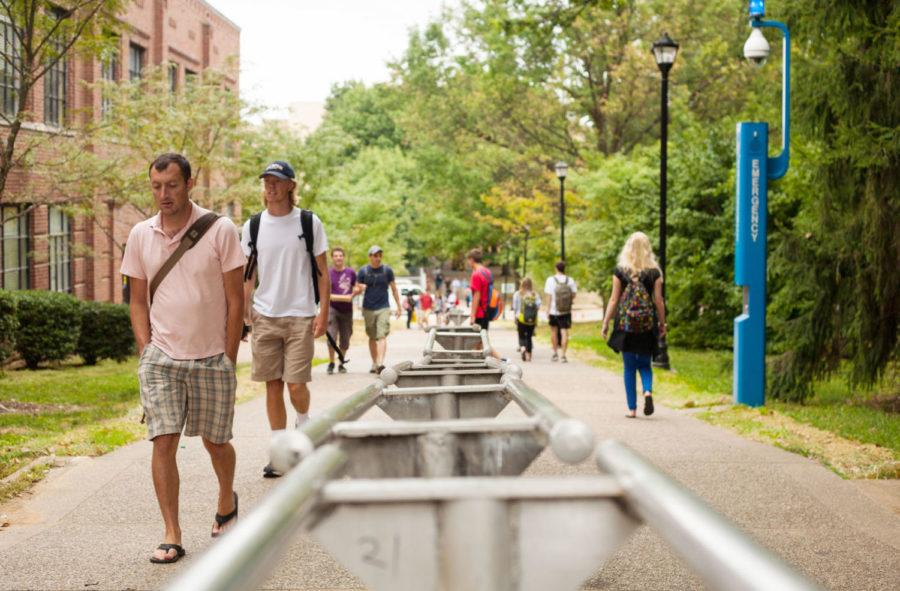Overstressed, overworked and better-prepared? The pros and cons of working in college
People walk between Lafferty Hall and the Lucille Little Library during UK’s first day of classes in Lexington, Ky. on Wednesday, August 26, 2015. Photo by Adam Pennavaria | Staff
March 8, 2018
College isn’t always a crazy party with limited responsibilities and endless freedom. Many people even view college as a full time job itself. Between juggling 15-20 hours of classes, homework, studying and extra-curricula activity, it is no wonder college students are always stressed.
“Working while being in school is definitely challenging,” said Peyton Lindquist, a senior hospitality major. “You really have to learn time management to get everything done in time for school.”
Lindquist is one of the many college students around the country who works part-time while being in college full-time.
According to a survey conducted by the Huffington Post, four out of five college students are working part-time while getting their degrees, averaging about 19 hours a week. Of those students who work, 64 percent reported that working while in school has increased their stress level and 57 percent reported that work decreased the amount of time they had to work on assignments.
Emily Hedges, an art history junior, can relate. She works an average of 25 hours a week while also taking 18 credit hours.
“Since I do work so much, it can be hard to not only turn in assignments on time but to also make sure that they have quality to them,” Hedges said.
When faced with the question of how many hours a week students should work, faculty members and administrators across the United States often answer with 10 to 15 hours per week, at an on-campus job.
But this has proved to be unrealistic for the majority of undergraduate students working part-time jobs. According to the National Center for Educational Statistics, 60 percent of college students say that their parents expect them to work while in college to help pay for their living expenses and other bills. Working 10-15 hours per week at a minimum-wage job on campus may not cover those expenses.
But for some, working while in school has had benefits outside a paycheck.
“For me, making money is a need in my life, so work is something that I have to do,” said Morgan Collier, a nursing major. “But overall I enjoy my job. It also aligns with my major in college, so I can relate things to school, too.”
According to Dundes and Marx’s study of over 250 college students, students who worked 10-19 hours per week were actually more likely to have a higher GPA than students who work less than 10 hours a week or not at all. This is because students who work spend more time studying and manage their time better than students who don’t have as many responsibilities.
“I feel like working while in school has actually benefited me in a lot of ways and has let me grow as a person,” Lindquist said. “It’s even more rewarding to get good grades and then have money to spend on yourself.”




















































































































































